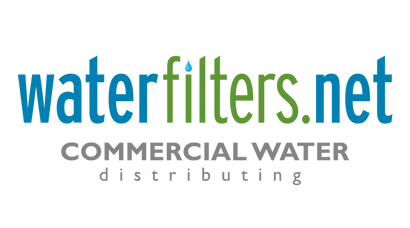Whole House Systems
Drinking Water Systems
Replacement Filters

The Benefits of Filtered Tap Water
December 20, 2023 3 min read
The Benefits of Filtered Tap Water
Drinking water is an essential resource that we all need to stay hydrated and healthy. With the rise of bottled water consumption, many people may be overlooking the benefits of filtered tap water. Here are a few reasons why filtered tap water can be a better choice than bottled water.Save Money with Tap Water
The cost of bottled water can add up quickly, especially if you're buying it regularly. In contrast, tap water is much cheaper and readily available. With a simple filtration system in your home, such as a reverse osmosis system, you can enjoy the same great taste and purity of bottled water for a fraction of the cost. Assuming that you consume 64 oz. of water daily and mostly prefer bottled water, you would need almost three 20 oz. bottles of water each day. This consumption would add up to a cost of $3 per day or $1,095 per year. However, if you were to fill 1,095 bottles with tap water instead, the cost would only be $0.48 per year. In other words, purchasing just one bottle of water already costs twice as much as a year's supply of tap water. Though you will occasionally need to replace the filters in your preferred filtration system, the annual cost is still significantly lower than if you were to only drink bottled water instead. For example, if you were to purchase the Tier1 RO5 Replacement Filter Bundle 5-Pack every 6 months, you would only spend about $100 per year, making this option over 90% cheaper than buying bottled water. Investing in a reusable water bottle can also save you money in the long run, as you won't have to keep buying disposable plastic bottles.The Convenience of Tap Water
Another benefit of tap water is its convenience. With bottled water, you may need to go out of your way to purchase it from the grocery store, store it in your kitchen, or carry it around with you, but with tap water, you have a constant supply of water at home. A great way to provide cleaner tap water to every faucet in your home is to install a whole house system, such as a water softener. In addition to this, modern refrigerators also have built-in water filters, making it even easier to access clean, refreshing water.Tap Water Quality vs Bottled Water Quality
Tap water is also highly regulated and tested for safety by local authorities. In the United States, tap water is subject to the Safe Drinking Water Act, which sets strict standards for water quality. Bottled water, on the other hand, is regulated by the Food and Drug Administration, which has less stringent rules than the Environmental Protection Agency, which regulates tap water. Additionally, bottled water may not be subject to the same level of testing and monitoring as tap water because it is not mandatory for bottled water corporations to conduct lab tests or inform consumers where their water originates. This has led to a large percentage of bottled water products that are just repackaged unfiltered tap water.The Environmental Impact of Bottled Water
One of the biggest downsides of bottled water is its impact on the environment. According to the Container Recycling Institute, only around 23% of plastic water bottles are recycled in the United States. The rest end up in landfills or in the ocean, where they can harm marine life and contribute to pollution. In contrast, tap water has a much smaller environmental footprint. By drinking tap water, you can help reduce the amount of plastic waste in the world.Microplastics in Drinking Water
Microplastics refer to tiny fragments of plastic waste that originate from the disposal and degradation of industrial waste and consumer products in the environment. According to Orb Media, 93% of bottled water contains microplastics, such as polyethylene terephthalate (PET), which can have adverse effects on your health such as hormonal system disruption. Other microplastics have been linked to health issues including poor heart health, impaired brain development, cancers, and reproductive complications. Though it was also found that 83% of tap water also contains microplastics, a sediment filter with a micron rating lower than 2.5 can trap a large percentage of microplastic contamination.In conclusion, there are many reasons why filtered tap water can be a better choice than bottled water. Not only is it cheaper and more convenient, but it is also subject to rigorous safety standards and has a smaller environmental impact. If you're looking to make a positive change in your lifestyle and health, consider switching to filtered tap water.
{"statementLink":"","footerHtml":"","hideMobile":false,"hideTrigger":false,"disableBgProcess":false,"language":"en","position":"left","leadColor":"#146ff8","triggerColor":"#146ff8","triggerRadius":"50%","triggerPositionX":"left","triggerPositionY":"bottom","triggerIcon":"people","triggerSize":"medium","triggerOffsetX":20,"triggerOffsetY":20,"mobile":{"triggerSize":"small","triggerPositionX":"left","triggerPositionY":"bottom","triggerOffsetX":10,"triggerOffsetY":10,"triggerRadius":"50%"}}
